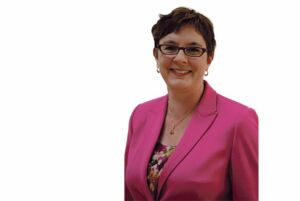Opinion
Living in an Expat World | Tiny speaking, how may I help you?
This article is more than 12 years old.

In the past year, 171 employees across the Central Denmark Region have dedicated 20,696 hours to improving the conditions for international employees and their families living in the area. Some 3,135 participants have taken part in 166 social and professional events, and the media has written at least 67 articles about our project, the ‘Welcome and Retention of international employees II’.
These were just a few of the numbers that were highlighted at the project’s recent midway conference, which involves partners from all 19 councils in the Central Denmark Region (the area in the middle of Jutland from Horsens in the south to Struer in the north). The project aims to support companies that wish to attract, welcome and retain talented international employees – and therefore continuously strive to improve the conditions for international employees and their families in the area.
At the conference 100 practitioners from the whole area discussed how we can continue to build bridges between companies, public services and international employees – and not least how we can improve the overall experience of being an expat in Denmark. Despite our efforts so far, there is still a lot of work to be done to improve the overall experience of being an expat in Denmark.
The broad co-operation between organisations all over Central Denmark Region makes it possible to make wide-ranging changes that reverberate throughout the country. The project is not only breaking geographical barriers but also mental barriers concerning what is possible if you are willing to co-operate and share best practice solutions and knowledge in order to create significant and lasting results.
As you know, the most valuable knowledge comes straight from the horse’s mouth. Therefore we asked international employees to join us at the conference and tell us about their experiences in Denmark. Their stories are probably similar to what you already know or have experienced yourself: both good and bad. Among the mentioned challenges were red tape, the large amount of paperwork, the lack of jobs for spouses and networking with Danes.
The good news is that the project has focused on these matters for a year now and has been able to make many changes for the better. However, we are also aware that we have not reached our goals just yet – and we have one year left to do so. The project and its 171 employees are still working hard to make sure that living and working in Denmark will be an even better experience for international employees and their families. However, it is a continuous effort with no end date – and hopefully we will be able to anchor our efforts and continue our work locally.
In short, we are here to help international employees and their families settle in and continuously strive to improve our efforts – so how can we help you?
About










































